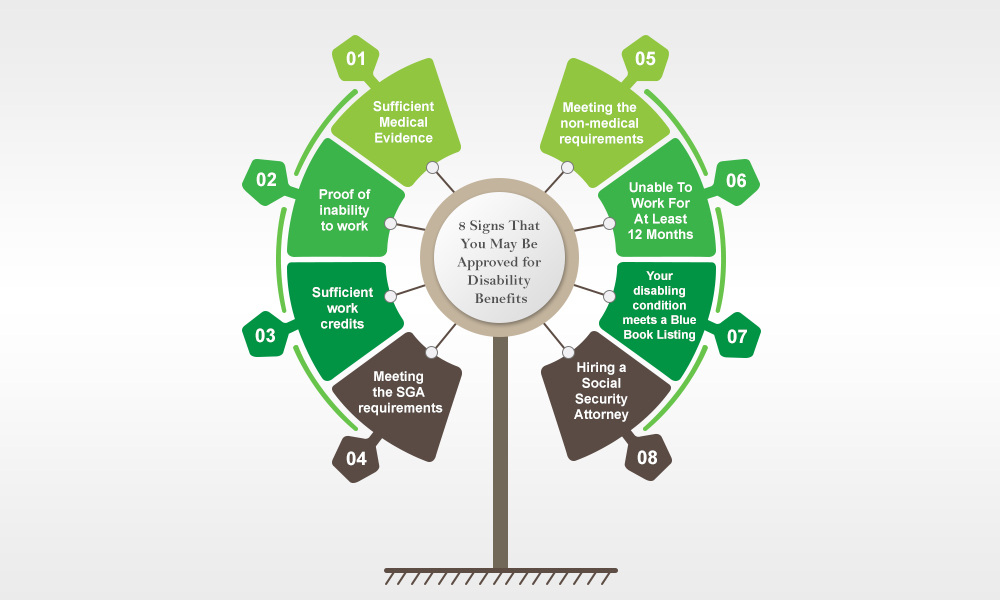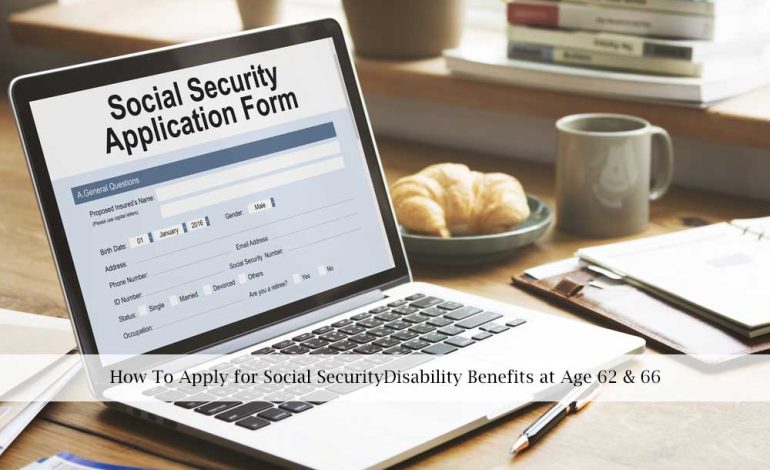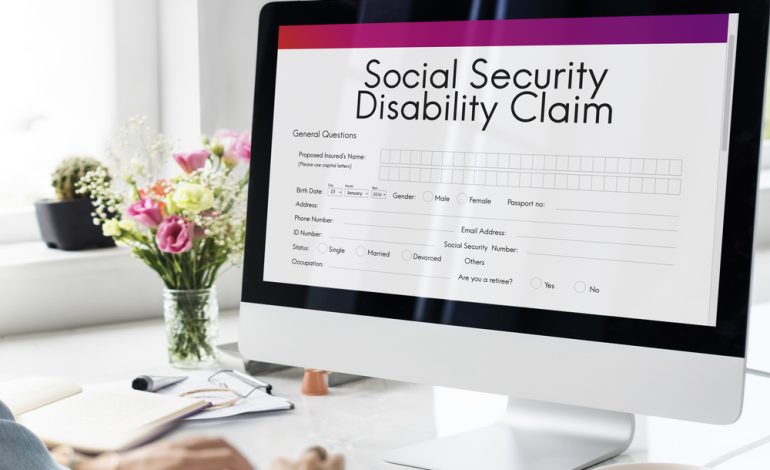8 Indicators That Your Disability Benefits Claim May Be Approved
The Social Security Administration (SSA) denies most of the disability claims filed before it. However, if you are unable to work because of a disability, you may need disability benefits for paying your bills and meeting your livelihood expenses. Therefore, your application for Social Security Disability (SSD) claim must carry sufficient evidence and substance to prove that you are unable to work and therefore entitled to receive SSD claim benefits from the SSA.
Depending on your Social Security claim, you may have to prove that you have obtained enough work credits, or that you earn less than the limits set by the SSA in terms of substantial gainful activity (SGA). Hiring an experienced SSD lawyer will help you navigate the complicated disability claims process and ensure that you do not get disqualified for disability benefits.

Watch out for the positive 8 Signs for Disability Benefits Approved
Navigating through the complex Social Security process can be a challenging and time-consuming process. The long wait and delays in getting an approval letter could become a cause of frustration and anxiety. Therefore, it is advisable that you watch out for the signs which suggest that your application might get approved. As such we can list down 8 signs suggesting that your disability claim may be approved:
1). Sufficient Medical Evidence
A number of SSD claims get rejected because the applicants fail to submit sufficient medical evidence to support the disability claim. Therefore, your application must carry overwhelming proof of the disability that qualifies you for Social Security Disability Insurance (SSDI) benefits. The SSA uses an official medical resource to determine benefits eligibility called the Blue Book. It lists all medical conditions and accompanying conditions qualifying claimants for Social Security Disability benefits.
In order to prove your disability and strengthen your disability claim, your application must carry the following documents-
- Medical history documents
- Diagnostic test reports
- X-Ray and CT Scan reports
- Treatment plan description and reports
- Drug prescription reports
2). Proof of inability to work
A basic requirement to be proved in all disability claims is that the applicant is unable to work because of the disability. If you are unable to work or perform tasks outside the area of your expertise, you will be more likely to have your disability benefits claim approved. The SSA requires you to prove that you have not worked for the past 12 months. To this end, your employer submits supporting documents that show you did not work during the said duration. However, you must add copies of your paycheck stubs and monthly bank statements to supplement your employer’s documentation.
The SSA can deny your application if sufficient proof to establish that you didn’t work for at least the past 12 months is not provided. Therefore, if you have sufficient medical evidence, you will have a much higher chance of winning disability benefits. You will have an even better chance of winning disability benefits if you provide other supporting documents like test results, physician’s report, and your recovery progress along with your SSD application.
3). Sufficient work credits
You earn work credits by paying Social Security taxes out of your earnings. You are awarded work credits. You are awarded work credits based on your earnings at a job or through self-employment. Your claim will be approved by the Social Security Administration only if you have earned enough work credits. The number of work credits needed by an individual to qualify for disability benefits depends on the age when an applicant first faced the symptoms of a disability.
4). Meeting the SGA requirements
The SSA may approve your application for SSDI claim benefits if it is satisfied that you are no longer able to participate in a substantial gainful activity (SGA). The monthly SGA is set differently by the SSA for different disabilities. In 2022, the SGA for blind applicants has been set at $2,260, whereas the monthly SGA for non-blind disabled applicants has been set by the SSA at $1,350.
5). Meeting the non-medical requirements
If you have accumulated sufficient work credits before becoming disabled, SSA will allow Social Security Disability Insurance (SSDI) benefits. To use these work credits, you must have worked for an equivalent of at least 5 years full-time out of the last 10 years. The number of work credits that make you eligible for winning SSDI benefits depends on your age and the date on which you became disabled. Generally, you need 40 work credits, 20 of which you must have earned in the 10 years immediately preceding the year in which you became disabled. However, a younger worker may qualify without the need to earn that many work credits. The number of work credits as per age is listed below:
- If you are less than 24 years old, you will need 6 work credits in the 3-year period ending on the date when your disability started.
- If you are between 24 and 31 years old, you will need work credits equal to half the time you worked between age 21 and the year in which your disability began. For example, if you were 29 when you suffered from the disability in question, you will need a work history of at least 4 years and 16 work credits.
- If you are between 31 and 42 years old, you will need at least 20 work credits.
- If you are over 42 years old, your work credits requirement will be based on a sliding scale that adds 2 credits every two years to the base requirement of 20 work credits. Therefore, if the applicant is 60 years old, a total of 38 work credits will be needed.
6). Unable To Work For At Least 12 Months
If you have been prevented from working for at least one year due to your disabling condition the SSA may approve your claim and deem you eligible for disability benefits. In fact, if your disability is such that it would not last for 12 months, you will not qualify for disability benefits from the Social Security Administration.
7). Your disabling condition meets a Blue Book Listing
If you show that your disability meets the criteria set in a Blue Book listing, it could be a clear ground for awarding disability benefits. However, if you cannot meet any of the criteria in the Blue Book listing, you can still qualify through a medical-vocational allowance and fill in a residual functional capacity (RFC) form after getting tests conducted by your doctor.
Under Social Security’s rules, if an applicant can perform “Substantial Gainful Activity” (SGA), then such an applicant won’t be eligible for disability benefits. In 2022, the SGA limit is $1,350 monthly for non-blind applicants and $2,260 for statutorily blind applicants. If you earn more than the prescribed SGA limit, you won’t qualify for disability benefits.
Therefore, earning below the set SGA limits may be a sign that you could get approved for SSDI benefits. Yet, merely earning below SGA limits does not guarantee approval for disability benefits. It only ensures that you are not disqualified in your bid to win Social Security Disability Insurance benefits.
After a favorable hearing, the Administrative Law Judge (ALJ) may tell you at the conclusion of your hearing that you have been approved for disability benefits. This is called a bench decision. If a medical expert concurs that your condition matches a Blue Book listing and a vocational expert to agrees that you cannot return to work and that you cannot do any other job with your disability, it is a sign that you could be approved for disability benefits.
8). Hiring a Social Security Attorney
A majority of disability claims are denied by the Social Security Administration, and seeking the services of an experienced SSD lawyer could help you in ensuring that your application is approved and that you win the benefits that you need and deserve.
A Disability Attorney or Advocate can help you navigate through the complex processes involved in Social Security Disability applications and present overwhelming medical evidence proving that you are disabled and eligible for SSD benefits.
Moreover, an experienced Social Security Disability lawyer keeps tracking your application to fill in any supplementary documents that may be needed. It also stays in touch with the SSA to ensure that there is no unaddressed deficiency in your application.
Moreover, if the SSA denies your application for disability benefits, your attorney may pursue a reconsideration appeal with the SSA or further appeals at other levels. This can help you ensure that you do not remain abandoned if the SSA denies your application at the initial determination stage.
Contact Clauson Law for an Experienced SSD Advocate-
If you feel that there are signs of your disability benefits application getting approved, you must contact an experienced and reliable SSD Advocate at the earliest. At Clauson Law, we have a dedicated team of disability attorneys and advocates who are committed to helping you win the benefits you deserve. Contact us today for a free consultation and case review.



1 Comment
Thanks for helping me understand how hiring a lawyer can help you get compensated for any benefits after getting disabled from an injury. I can see how this could help employees involved in an accident even though they didn’t want to. I will keep this in mind and find a lawyer if it happens to me someday.